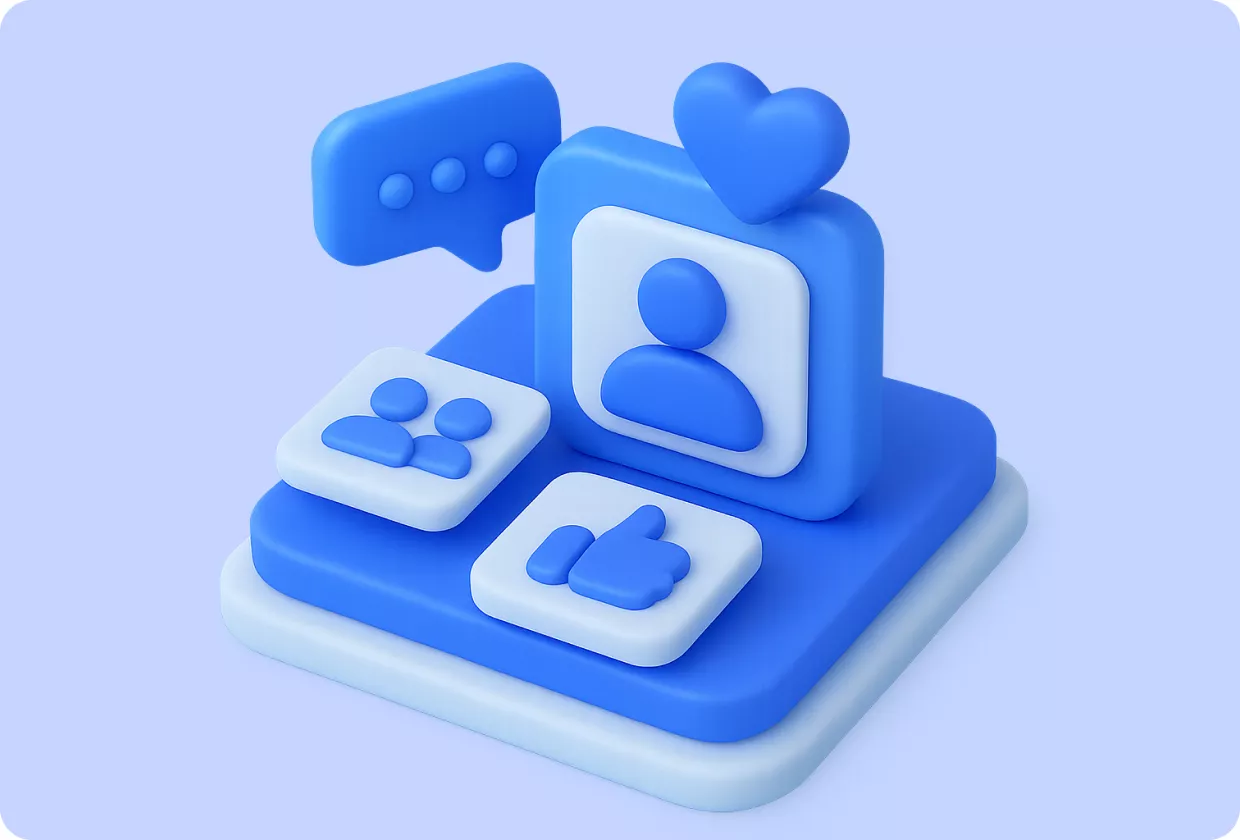
Adding social features to an app transforms it from a standalone tool into an interactive community. These features—such as profiles, activity feeds, direct messaging, and leaderboards—encourage users to connect, share, and return frequently. For developers and product teams, this shift can lead to measurable gains in retention, engagement, and revenue.
Apps that integrate community features see up to 25% higher retention compared to non-social apps.
Social interactions create emotional investment. When users form relationships or follow others’ activities, they’re more likely to return. Notifications about comments or messages drive repeat visits and habitual app use.
Features like feeds, likes, and comments generate continuous interaction loops. This increases session length, daily active users (DAU), and user-generated content—all of which strengthen engagement KPIs.
Social features support new revenue streams such as creator tipping, in-app events, and influencer-led campaigns. They also enhance ad targeting through first-party engagement data.
Unlike passive analytics, social interactions yield zero-party data—information users voluntarily share through their activity. This helps product teams personalize experiences responsibly and comply with privacy expectations.
Social features turn users into advocates. Communities that thrive around shared interests or creators naturally attract new users through word-of-mouth and network effects.
Building social features from scratch requires backend, moderation, and data infrastructure. SDKs and APIs simplify this process by offering modular, pre-built components.
social.plus is a leading provider of social infrastructure for apps. Its SDKs let developers add feeds, chat, groups, and analytics with minimal engineering effort. With built-in engagement tracking and moderation tools, it supports rapid deployment while maintaining scalability and compliance.
Adding social features is a proven strategy for boosting engagement, retention, and monetization. They turn one-time users into active community members and provide valuable behavioral insights for ongoing optimization. With modern SDKs like social.plus, teams can quickly build scalable, compliant social layers that strengthen user connection and app longevity.